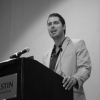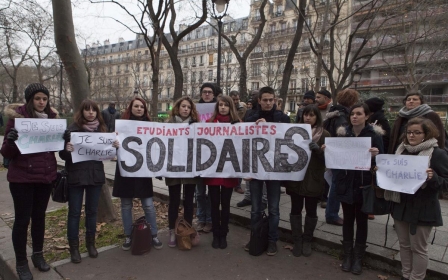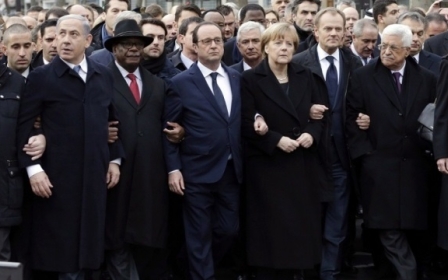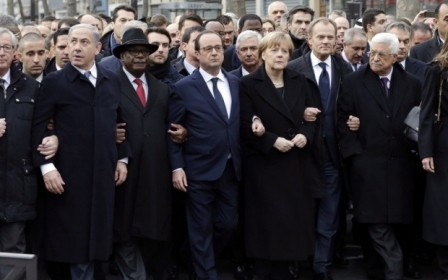The convenient myth of radicalisation
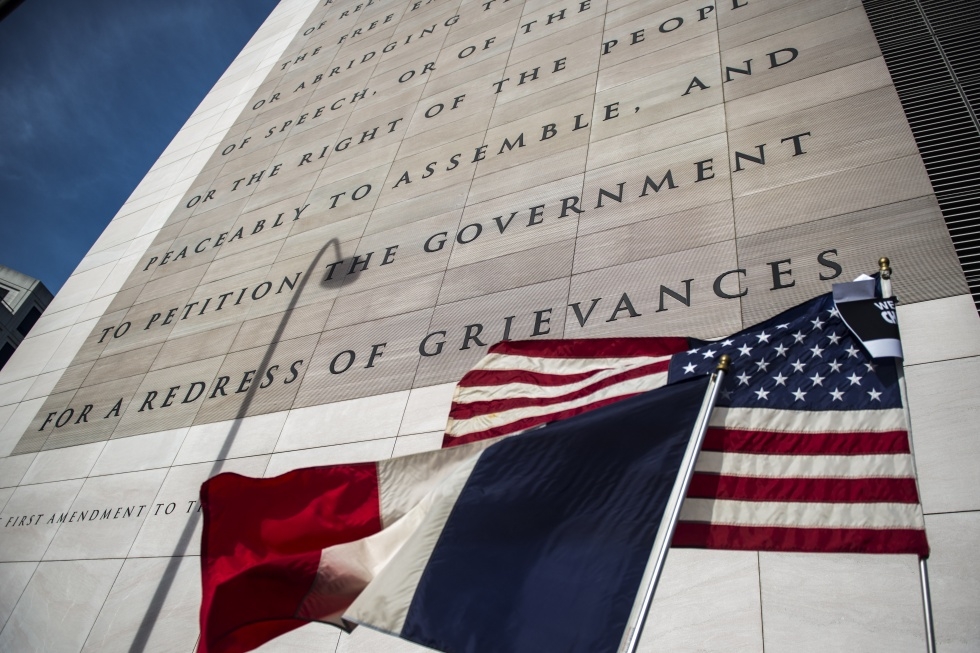
Why is it standard procedure for the media to focus on the religiosity of the terrorist, rather than his political grievances, in any analysis of a terrorist attack? Because it’s both easy and reassuring. Characterising the perpetrators as one-dimensional, religious fanatics provides us with a comforting narrative - that their violence is rooted in extremism and does not have any broader political context that needs investigating or self-examination.
One of the great post-9/11 myths has it that radicalisation is rooted in a sudden religious awakening. “Clash of civilisations” warriors will point to cherry-picked passages from the Quran as evidence that terrorism is demanded in scripture. It isn’t. The Quran justifies war in limited and specific contexts. But nevertheless the myth holds that Islam’s holy texts stand alone as the fuel source for the radicalisation of those who sign on for violent jihad. This radicalisation myth has it that terrorists are somewhat randomly and suddenly awoken by a violent religious awakening as a result of being exposed to one too many recitations of Islam’s holy book or via the influence of a radical Imam at their local mosque. If this were indeed true, it would be a neat and tidy way to externalise evil, while also allowing us to delude ourselves into believing terrorists are created in some kind of suspended vacuum – somehow ignorant of the violence carried out by our own governments.
The reality is terrorists are radicalised more by watching YouTube clips of US and Israeli military atrocities than they are by reading the Quran.
This is not an exercise in blaming the victim, but rather an examination of the cause-and-effect links in the chain of terrorism and the dominant role politics plays in the radicalisation of terrorists.
Since the middle of the 20th century, specifically since the creation of the state of Israel that unleashed intolerable injustices on Palestinian Arabs with its occupation, the West and Muslims have been locked in a never-ending circular cycle of violence. State violence begets a non-state violent response, then, in turn, state violence responds to that. Wash. Spin. Repeat.
“Liberals and conservatives are wrapped in that loop of this circle of violence,” said Arun Kundnani, a New York University adjunct professor and counterterrorism analyst, in a recent interview. “Liberals are typically bad on not acknowledging their part. Using these words like terrorism, extremism and radicalisation is a way of defining the other guy’s violence as barbaric and fanatic. Thus, your own violence is rational, necessary and legitimate.”
For many Western media elites, and Islamophobes in general, the Islamic texts themselves are the problem. “Terrorism arises from an interpretation of Islam which takes the words of the Quran literally as a command to kill unbelievers in jihad, or holy war, in order to impose strict Islamic tenets on the rest of the world,” wrote Melanie Smith in the wake of the 2013 Woolwich, UK, murder of an off-duty British soldier.
Smith’s assertion is based in scriptural ignorance. “There is no Islamic doctrine of ‘kill the unbelievers,’ as anti-Islam propagandists often maintain,” notes Kundnani, who is a Muslim and lifelong scholar of Islam. “Islam, like other religions, provides a broad moral framework for thinking about questions of violence; the real question is how Muslims apply this framework to particular situations. Disagreements over these questions reflect different analyses of particular political contexts rather than disagreements over theology.”
As an exercise, let’s assume the total number of jihadis amounts to no more than 100,000, which is excessively generous given al-Qaeda and Islamic State are said to be 10,000 and 30,000 strong, respectively. Now even if there were indeed 100,000 jihadis – this would represent less than 0.0000625 percent of the worldwide Muslim population.
Obviously, if Muslims are reading the same texts, yet 99.9999375 percent of Muslims are not waging violent jihad, then the radicalisation of the infinitesimal minority who do must include factors that are external to Islam.
“The concept of radicalisation emphasises the individual and, to some extent, the ideology and the group, and significantly de-emphasises the wider circumstances – the ‘root causes’ that it became so difficult to talk about after 9/11, and that are still not brought into analyses,” writes Mark Segwick. “So long as the circumstances that produce Islamist radicals’ declared grievances are not taken into account, it is inevitable that the Islamist radical will often appear as a ‘rebel without a cause’.”
As such, it’s both tempting and lazy to portray the Paris attackers as religious ideologues who were radicalised into violent action on account of their respective and deeply held religious views. It’s also convenient for neoconservative, Western culturalists and pro-Israel lobbyists to root terrorism in Islamic ideology rather than in a political reaction to US and Israeli policy.
“Religion had nothing to with this. We watched films. We were shown videos and images of the war in Iraq. We were told we must do something big. That’s why we met,” said Hussein Omar when interviewed after participating in a plot to bomb the London Underground in 2005.
Amedy Coulibaly, the gunman who held and killed four hostages in the kosher supermarket during last week’s Paris attacks, was recorded speaking to several hostages. In justifying his actions Coulibaly gave only one reference to Islam, and that was when he claimed his actions were based on “an eye for an eye,” which is text also found in the Bible. Coulibaly said he attacked because the French military has attacked Muslims in Syria, Iraq and Mali. He also cited Israel’s occupation and oppression of Muslims in Palestine as one of his primary motives. “I was born in France. If they didn’t attack other countries, I wouldn’t be here,” he said to one of his hostages.
According to 2008 court documents, the Charlie Hebdo killers, Said and Cherif Kouachi, were radicalised by the US invasion of Iraq and the abuse of detainees at Abu Ghraib. CNN reported that the Kouachi brothers were avenging the death of al-Qaeda in the Arabian Peninsula leader and US-born cleric Anwar al-Awlaki, who also self-radicalised not through his religious belief, but rather by the US war on terror. In the days after the 9/11 attacks, al-Awlaki denounced the 9/11 attacks. “There is no way that the people who did this could be Muslim, and if they claim to be Muslim, then they have perverted their religion,” al-Awlaki told journalists. He also said in a 2003 interview that jihad can only be justified if there is an invading force from outside.
From 2005, however, al-Awlaki’s positions against America hardened. “What we see from America is the invasion of countries; we see Abu Ghraib, Bagram and Guantanamo Bay; we see cruise missiles and cluster bombs, and we have just seen the death of 23 children and 17 women,” declared al-Awlaki in a lecture he gave in 2010 titled “A Call to Jihad.”
“What was essentially new in al-Awlaki’s statements from late 2005 onward was not his theological position but a reinterpretation of the political circumstances that Muslims were in,” writes Kundnani in his book The Muslims Are Coming: Islamophobia, Extremism, and the War on Terror. “The ultimate source of his idea of a global war to defend Islam was the militarised identity politics of the global war on terror itself.”
The radicalisation process of the Sydney gunman, the Boston bombers, the London underground attackers, the Woolwich killers, and the Paris attackers have all followed the same path of al-Awlaki. In each instance, the terrorist held life-long commitment to the Islamic faith but radicalisation came as a reaction to the war on terror and Israel’s increased human rights violations against Palestinians. In other words, political circumstances radicalise the terrorist, while religion is used to express and justify that radicalisation.
French sociologist Oliver Roy is a widely respected authority on the European Muslim experience. He argues that one must separate theology from violence. “The process of violent radicalisation has little to do with religious practice, while radical theology, as salafism, does not necessarily lead to violence,” Roy writes in Al Qaeda in the West as Youth Movement: the Power of Narrative.
Unfortunately, and despite the fact it has been nearly 14 years since the al-Qaeda attacks of September 11, the media, neoconservatives and Islamophobes remain committed to condemning terrorism in a self-serving and hypocritical manner. These groups refuse to examine or even acknowledge the role that the normalisation of state-sponsored violence plays in perpetuating this endless cycle of violence. If we are unwilling to “starve the resentments on which the terrorists feed,” then we will continue to sleepwalk our way into apocalyptic oblivion.
- CJ Werleman is an opinion writer for Salon, Alternet, and the author of Crucifying America, and God Hates You. Hate Him Back. Follow him on twitter: @cjwerleman
The views expressed in this article belong to the author and do not necessarily reflect the editorial policy of Middle East Eye.
Photo: French and American flags wave in front of the Newseum's First Amendment tablet during the Unity Rally on 11 January 11 in Washington, DC (AFP)
New MEE newsletter: Jerusalem Dispatch
Sign up to get the latest insights and analysis on Israel-Palestine, alongside Turkey Unpacked and other MEE newsletters
Middle East Eye delivers independent and unrivalled coverage and analysis of the Middle East, North Africa and beyond. To learn more about republishing this content and the associated fees, please fill out this form. More about MEE can be found here.


